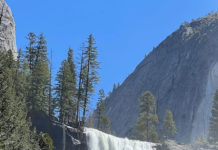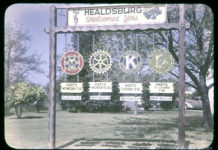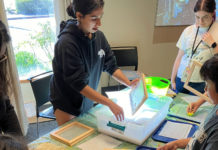Not all Fourth of Julys have been as historic as this year seems to be. We stand just 10 or so generations beyond the original 1776 founding of our country and our Declaration of Independence. Our times are nowhere as monumental as the Independence Days celebrated during our Civil War or the bleakness of two world wars. Yet, right now, we have arrived at a historic defining point as we debate — and must decide — what America’s “greatness” truly is, how it was created and whether it has been lost or needs a radical reformation.
For all the other things it is not, the 2016 Presidential Election will be a historic date in our country’s existence. Our first woman president could be elected. We might participate in the ugliest political contest since the guns and whiskey days of Andrew Jackson, the No-Nothings or the collapse of the Whig Party. American voters might eclipse the embarrassment of Great Britain’s vote last week to expel itself from the European Union. Almost two-thirds of us might sleepwalk or Twitter through our November election. We might wake up in a reality TV plot, trumped, bummed and bewildered. In other words, we might not feel so “great.”
It may all come down to which America we celebrate on this Fourth of July. Do all the red, white and blue banners stand for liberty, justice and the individual pursuit of happiness? Or, are all the fireworks displays reminders of America’s military strength and a past century of global dominance? Are we the nation built on a social experiment of equality and a people’s republic? Or, are we still a country that tries to hide its slave-owner history and manifest destiny to decimate millions of Native Americans? Are we great because we admit our honest mistakes, or do we seek a different greatness that is based on bragging rights and sheer domination?
Let’s not ruin our Independence Day picnics, OK? Most of us define America’s greatness in a positive way. Few of us doubt that the United States of America is not the greatest country ever to exist in all of civilization. We are prosperous and share with the world’s poorest countries. Our America defends freedom for all people and nations and we are the greatest society of technological advancements, academic ideas, cultural contributions and financial strength.
Our Fourth of July gatherings will be celebrated with peace, security, various stripes of patriotism and a great ethnic stew – not just hot dogs and baseball. And, there will be some partisan oratory about whether America has lost its greatness or not.
There is little doubt the American Dream is not what it once was. Once upon a time the American Dream meant a family could come to our shores and cross our borders to seek a better opportunity in exchange for hard work and shared values. Race, religion or political beliefs did not matter. Part of what made America great were the Irish-Americans, Chinese-Americans, Italian-Americans, Indian-Americans, Mexican-Americans and Native and African Americans.
If it is true that we need to make America great again, as it reads on red baseball caps these days, how do we do that? In order to do that, do we exclude people who want to dream the American Dream? Do we deny our founding principles of religious and personal freedoms?
Most of the debate over America’s greatness could be resolved by a few history lessons. We shouldn’t confuse greatness with innocence or perfection. America always has been a nation with many divides, including institutionalized racism, favoritism and sexism. White males still have it best. But even they don’t like losing their greatness to domineering corporations, king-making billionaires and techno-tyrants.
The greatness of America was summed up 240 years ago with the first three words we wrote: “We, the people.”
— Rollie Atkinson
50.1
F
Healdsburg
May 14, 2024




